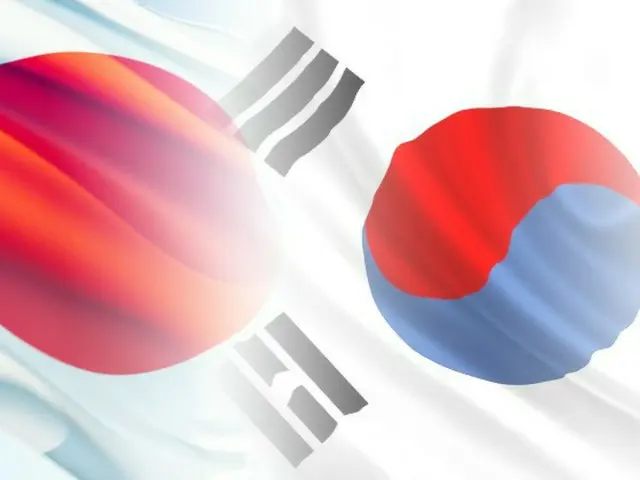According to a public opinion poll conducted by the Japan-Korea Joint Committee, 73.4% of respondents said they were "concerned" about the impact that the ongoing political turmoil in South Korea will have on Japan-Korea relations.
The situation improved dramatically under the administrations of Prime Minister Tae-won and President Yoon. Currently, there is active exchange between the political and economic circles of Japan and South Korea, as well as between the people of Japan and South Korea. Next year marks the 60th anniversary of the normalization of diplomatic relations between the two countries.
There are concerns that if a new government led by new opposition forces is formed, Japan-South Korea relations will cool again, so the Japanese government plans to keep a close eye on future political developments in South Korea.
South Korea was suddenly thrown into political turmoil when Yoon declared a state of emergency late at night on the 3rd of this month.
In response, armed soldiers of the martial law army broke the glass and rushed into the National Diet Building. A military HYERI helicopter also flew over the National Diet. In a situation reminiscent of the military regime, after the declaration,
Many citizens gathered, shouting slogans against martial law and surrounding military vehicles, causing chaos. However, martial law can only be lifted if a majority of members of the National Assembly request it, and the president can only do so.
Immediately after the declaration, a plenary session of the National Assembly was held, and all 190 lawmakers in attendance voted in favor of lifting the state of emergency. Yoon lifted the state of emergency after just six hours.
Opposition parties including the Democratic Party of Korea have said that Yoon "attempted to suspend the constitutional order and commit a civil war in an attempt to seize permanent power."
The Democratic Party of Korea pointed out that the president violated the constitution and submitted a motion to impeach Yoon to the National Assembly. The motion was passed by 204 votes in favor and 85 votes against on the 14th. As a result, Yoon's powers as president were suspended.
Prime Minister Han Deok-soo will now act as acting president. The Constitutional Court will decide whether Yoon should be impeached, and if so, a presidential election will be held within 60 days.
Immediately after the bill was passed, Yoon issued a statement, saying, "We will pause for a while, but we must not stop on the journey to the future that we have been walking together with the people for the past two and a half years."
"I will never give up," he said, showing his determination to return to his post. "In these difficult times, I will devote all my energy to running the country steadily," he said.
"We will do our utmost to achieve this," he said. Amid concerns about the impact on diplomacy, Minister of Foreign Affairs Cho Tae-yol said on the 15th, "We will strive to gain the trust and support of the international community as soon as possible."
In particular, he expressed his intention to make efforts to maintain cooperation among the three countries of Japan, the United States and South Korea. Following the passage of the impeachment bill, there has been growing interest in Japan about the improvement of Japan-South Korea relations with the Yoon administration.
The impact on the relationship between the two countries is a major factor. The opposition parties in South Korea have criticized the diplomatic policy toward Japan that the Yoon administration has adopted thus far as "humiliating diplomacy." If Yoon is impeached, a presidential election will be held in the future.
If this administration is formed, it is expected that Japan-Korea relations will once again cool down. According to the Yomiuri Shimbun, in a nationwide opinion poll conducted by the company from the 13th to the 15th, the number of people who "feel" uneasy about future Japan-Korea relations was high.
The number of people who answered "yes" rose to 66 percent, surpassing the 31 percent who answered "no," according to the survey. Next year will mark the 60th anniversary of the normalization of diplomatic relations between Japan and South Korea, and Prime Minister Ishiba has been secretly considering inviting Yoon as a state guest to coincide with this.
The Yomiuri Shimbun reported, "The intention was to impress upon both domestic and international audiences that relations would be strengthened through a state visit to Japan, the first by a South Korean president in about 20 years, but circumstances have made this difficult to realize."
The Sankei Shimbun also commented on security cooperation, "South Korean diplomacy will likely retreat into its shell once again. As the threat from China and North Korea rapidly increases, the Japanese government is aware of the security crisis that this will bring."
On the other hand, Ishiba expressed concern that "South Korea is an important neighboring country that should cooperate as a partner on various issues facing the international community, and the importance of Japan-South Korea relations will not change in any way."
Chief Cabinet Secretary Yoshimasa Hayashi also said at a press conference on the 16th, "The importance of Japan-Korea relations remains unchanged. We will continue to communicate closely with the South Korean side."
2024/12/17 13:33 KST
Copyrights(C)wowkorea.jp 5

